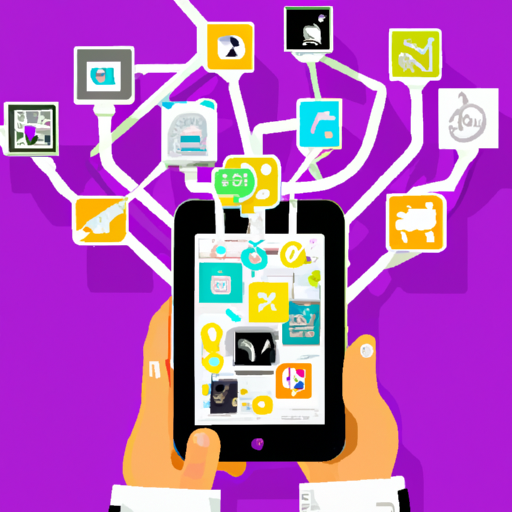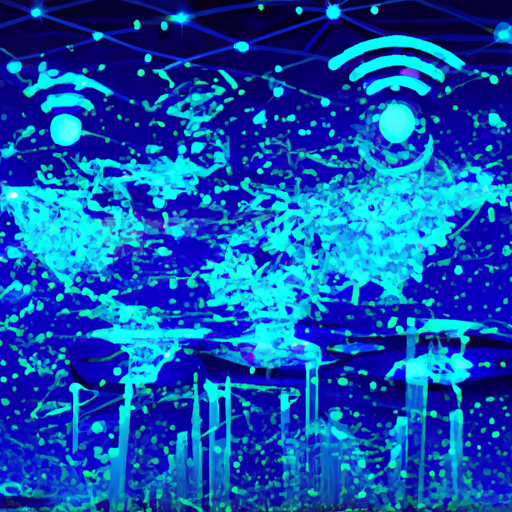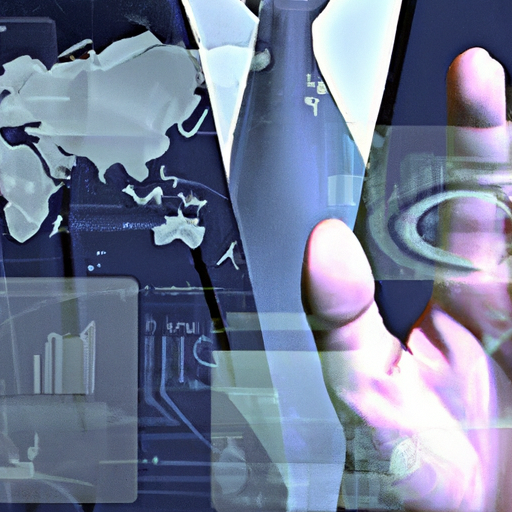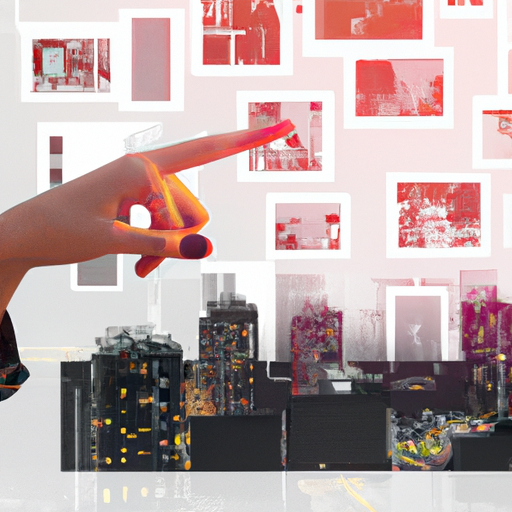How Have Trends In Technology Affected Housing?
Technology has revolutionized almost every industry, and the housing sector is no exception. Over the years, advancements in technology have significantly impacted the way we live, work, and even buy or rent homes. From smart homes that can be controlled with a simple voice command to virtual reality tours that allow potential buyers to explore properties remotely, technology has transformed the housing landscape in numerous ways. In this article, we will explore how trends in technology have reshaped the housing industry and examine the benefits and challenges that come with these innovations.
Table of Contents
Impact of Smart Home Technology on Housing
Smart home technology has revolutionized the way we live, providing countless benefits for homeowners. One of the major advantages is the integration of home automation systems. With this technology, you can control various aspects of your home, such as lighting, heating, and security, all from your smartphone or voice-activated assistant.
In addition to the convenience factor, smart home technology has significantly improved energy efficiency in homes. By optimizing energy usage through automated systems, homeowners can reduce their utility bills and minimize their carbon footprint. Smart thermostats, for example, can learn and adapt to your preferences, automatically adjusting the temperature in your home to ensure maximum energy efficiency.
Enhanced security measures are another key feature of smart home technology. With the advent of connected devices, homeowners can now monitor their properties remotely and receive instant notifications in case of any suspicious activity. Smart security cameras, door locks, and motion sensors provide an added layer of safety and peace of mind, allowing you to keep an eye on your home even when you’re away.
Not only does smart home technology offer convenience and security, but it also improves the overall comfort of your living space. Imagine waking up to the smell of freshly brewed coffee and having your blinds automatically open to let in the morning sunlight. Smart home automation makes this possible by integrating various devices and systems to create a seamless and personalized living experience.
Emergence of Sustainable Housing Solutions
As the world becomes more environmentally conscious, sustainable housing solutions have emerged as a viable option for homeowners. Green building techniques, such as using eco-friendly materials and optimizing energy efficiency, have gained popularity in recent years. These techniques not only reduce the environmental impact of construction but also result in homes that are more energy-efficient and cost-effective to maintain.
Renewable energy integration is another significant trend in sustainable housing. Homeowners are increasingly utilizing solar panels and wind turbines to generate clean energy for their homes. This not only reduces reliance on fossil fuels but also lowers utility bills and provides a reliable source of power, especially in remote areas.
The use of energy-efficient appliances has also become prevalent in sustainable housing. From energy-star rated refrigerators to low-flow water fixtures, these appliances contribute to a more sustainable and environmentally friendly lifestyle. Homeowners can significantly reduce their energy consumption and mitigate their impact on the planet by opting for these energy-efficient alternatives.
Smart thermostats and lighting systems have also found their place in sustainable housing. These devices help optimize energy usage by automatically adjusting temperature settings and controlling lighting based on occupancy. With the integration of artificial intelligence, these systems can adapt to the needs and preferences of homeowners, further enhancing energy efficiency and reducing waste.

Influence of Internet of Things (IoT) on Housing
The Internet of Things (IoT) has had a profound impact on the housing industry, transforming the way we interact with our homes. Connected devices and appliances have become a common feature in modern households, allowing homeowners to manage and control various aspects of their homes remotely.
From smart refrigerators that can track your grocery inventory to connected washing machines that adjust water levels based on load size, IoT has made our homes smarter and more efficient. These devices can be controlled through smartphone apps or voice-activated assistants, offering unparalleled convenience and ease of use.
Smart home assistants, such as Amazon Alexa and Google Assistant, have gained popularity in recent years. These virtual assistants can perform a wide range of tasks, from playing music to answering questions and even controlling other smart devices in your home. With voice commands, you can adjust the temperature, dim the lights, and even order groceries, all without lifting a finger.
Remote monitoring and control have also become prevalent with IoT technology. Homeowners can now monitor their homes from anywhere in the world using connected security cameras and sensors. This provides an added layer of security and peace of mind, as you can receive real-time alerts in case of any unusual activity.
Efficient resource management is another significant benefit of IoT in housing. Connected thermostats and lighting systems can automatically adjust settings based on occupancy and time of day, optimizing energy usage. Water leak detection sensors can detect and alert homeowners to potential leaks, preventing water wastage and costly repairs.
Digital Transformation in Real Estate Industry
The real estate industry has experienced a digital transformation in recent years, thanks to advancements in technology. Online property listings have become the norm, allowing prospective buyers and renters to browse through thousands of listings from the comfort of their homes. This saves time and effort, as you can easily filter properties based on your preferences and requirements.
Virtual property tours have also gained popularity, especially during the COVID-19 pandemic when in-person visits were limited. With virtual reality technology, potential buyers and renters can explore properties as if they were physically present, getting a realistic sense of the space and layout. This not only saves time but also ensures a safer and more convenient experience.
Smart contracts and blockchain technology have also found their way into the real estate industry. These technologies enable secure and transparent transactions, reducing the need for intermediaries and minimizing the risk of fraud. Property ownership records can be securely stored and accessed through blockchain, providing a reliable and tamper-proof system.
Property management software has also revolutionized the way properties are managed and maintained. From rent collection and tenant communication to maintenance requests and financial reporting, these software solutions streamline the entire property management process. Landlords and property managers can now efficiently handle multiple properties and streamline their operations.

Effect of Augmented and Virtual Reality on Housing
Augmented and virtual reality technologies have had a significant impact on the housing industry, transforming the way properties are marketed and experienced. Virtual staging and home design have become popular techniques to showcase properties in their best light. By digitally furnishing and decorating empty spaces, potential buyers and renters can visualize the potential of a space and get a better sense of its functionality.
Remote homebuying has also become a reality with augmented and virtual reality. With the ability to take virtual tours and interact with properties remotely, buyers can make informed decisions without the need for physical visits. This not only saves time and money but also widens the pool of potential buyers, as location is no longer a limiting factor.
Architecture visualization has also been enhanced by augmented and virtual reality. Architects and designers can now create immersive and interactive experiences, allowing clients to explore and interact with their designs before construction even begins. This enables better communication and collaboration, ultimately resulting in more efficient and personalized design solutions.
Interactive property experiences have also become more engaging, thanks to augmented reality technology. Realtors can use AR apps to overlay property information, such as pricing, room dimensions, and neighborhood details, directly onto the physical space. This interactive experience provides potential buyers with valuable information and enhances their understanding of the property.
Transformation of Home Entertainment
The way we consume entertainment at home has undergone a significant transformation, thanks to advancements in technology. Streaming services have revolutionized the way we watch movies and TV shows, providing on-demand access to a vast library of content. With platforms like Netflix, Hulu, and Disney+, you can binge-watch your favorite shows without the need for physical media.
Smart TVs and home theaters have become popular additions to modern homes. These devices offer high-quality picture and sound, creating a cinematic experience in the comfort of your living room. With smart TVs, you can access streaming services, browse the internet, and even control other smart devices using your voice.
Wireless audio systems have also gained popularity, providing a seamless and clutter-free listening experience. With wireless speakers and soundbars, you can achieve a surround sound effect without the need for complicated wiring. These systems can be easily controlled through smartphone apps or voice assistants, offering convenience and flexibility.
Integration of voice control has further enhanced the home entertainment experience. With devices like Amazon Echo and Google Home, you can control your TV, adjust volume, and even search for content using voice commands. This hands-free approach makes navigating and enjoying your favorite shows and movies easier than ever before.
Impact of Home Office Technologies
The rise of telecommuting and remote work has led to an increased focus on home office technologies. With more people working from home, having an efficient and productive workspace has become essential. Technology has played a crucial role in this transformation, enabling seamless communication, collaboration, and productivity.
Telecommuting and remote work have become more prevalent, thanks to advancements in communication technology. With video conferencing platforms like Zoom and Microsoft Teams, virtual meetings can be conducted from anywhere in the world. This saves time and money by eliminating the need for travel and allows for greater work-life balance.
Home office ergonomics have gained attention, with the focus on creating comfortable and efficient workspaces. Adjustable standing desks, ergonomic chairs, and proper lighting are all important aspects of a productive home office setup. Technology solutions like monitor mounts, wireless keyboards, and ergonomic accessories further enhance comfort and efficiency.
Digital security and data privacy have become critical concerns in the home office environment. With sensitive information being transmitted and stored digitally, it is essential to have robust security measures in place. Firewalls, antivirus software, and secure remote access protocols help protect sensitive data and ensure privacy in a home office setup.
Role of Artificial Intelligence (AI) in Housing
Artificial intelligence (AI) has increasingly become an integral part of the housing industry, offering a wide range of benefits for homeowners. Smart home automation is one area where AI shines, allowing homeowners to automate various tasks and create personalized living experiences. AI-powered systems can learn and adapt to your preferences, adjusting lighting, temperature, and other settings to match your needs.
Personalized living experiences are another significant advantage of AI in housing. Intelligent virtual assistants, like Google Assistant and Siri, can provide personalized recommendations for entertainment, news, and other aspects of your daily life. By analyzing your preferences and usage patterns, these AI-powered assistants can create a tailored experience that matches your unique needs.
Predictive maintenance is another valuable application of AI in the housing industry. By analyzing data from various sensors and devices, AI algorithms can detect patterns and predict when maintenance or repairs may be required. This proactive approach allows homeowners to address issues before they become major problems, saving time and money in the long run.
AI-enabled virtual assistants, such as Amazon Echo and Google Home, have become popular additions to many homes. These smart speakers can perform a wide range of tasks, from playing music and answering questions to controlling other smart devices in your home. With AI, these assistants can understand natural language and provide intelligent responses, enhancing the overall user experience.
Changes in Home Security Systems
Home security systems have significantly evolved with the advancement of technology, offering enhanced protection and peace of mind for homeowners. Advanced surveillance systems, such as HD security cameras and video doorbells, provide high-quality video footage and real-time monitoring capabilities. These systems act as a deterrent to potential intruders and can provide crucial evidence in case of a security breach.
Remote monitoring and alerts have become standard features of modern home security systems. With the ability to monitor your home from anywhere in the world using your smartphone, you can stay connected and receive instant notifications in case of any suspicious activity. This provides an added layer of security and allows for a quick response to potential threats.
Biometric access control has gained popularity in recent years, replacing traditional locks and keys with more secure and convenient alternatives. Fingerprint recognition, facial recognition, and iris scanning provide secure and reliable access to your home, eliminating the risk of lost or stolen keys. These biometric systems offer enhanced security and convenience for homeowners.
Integration with smart homes is another significant trend in home security systems. With the ability to connect and communicate with other smart devices, security systems can trigger automated responses in case of a security breach. For example, if an unauthorized entry is detected, the system can automatically lock doors, turn on lights, and send alerts to homeowners.
Impact of E-commerce on Housing
E-commerce has revolutionized the way we shop for furniture and home decor, offering a convenient and limitless shopping experience. Online furniture and home decor shopping platforms provide an extensive range of products, styles, and price points, allowing you to easily find the perfect pieces for your home. This eliminates the need for physical visits to multiple stores and saves time and effort.
Virtual renovation and interior design services have also become popular, thanks to advancements in technology. With virtual reality and 3D designing software, homeowners can visualize and experiment with different design options before making any physical changes to their homes. This allows for more informed decision-making and helps avoid costly mistakes.
Delivery and scheduling innovations have improved the overall shopping experience for homeowners. With options like next-day delivery, white-glove delivery, and flexible scheduling, receiving large furniture or home decor items has become more convenient than ever before. This eliminates the need for renting trucks or waiting for extended periods for deliveries.
Smart package management systems have also emerged as a solution to the challenges of package delivery and security. These systems provide secure and convenient storage for packages, ensuring that they are protected from theft or damage. With features like automated notifications and access control, homeowners can easily manage and retrieve their packages at their convenience.
As technology continues to advance, the impact on the housing industry will only grow. From smart home automation to sustainable housing solutions, these trends are shaping the way we live and interact with our homes. Whether it’s improving energy efficiency, enhancing security, or transforming the way we work and entertain ourselves, technology is truly revolutionizing the housing industry.






